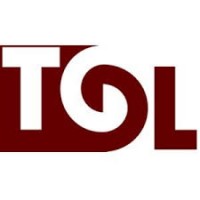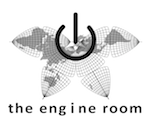This post, by Maria Grabowski, was originally published by the engine room as “Six Questions From The Engine Room for TOL – Transitions Online”
This is the fourth post in a series on resources featured in the Social Tech Census. The engine room’s Social Tech Census is an online, searchable database of support for advocates around the globe looking to make better use of digital media and mobile phones. It identifies a variety of resources for the use of technology in advocacy. The latest post in this series is here.
Transitions(TOL) is a Prague-based media development organization working to strengthen the professionalism, independence and impact of the news media and civil society organizations in the post-communist countries of Europe and the former Soviet Union.

New Platform for Civic Activists
The engine room recently spoke to Jeremy Druker, the executive director and editor in chief, from the Prague office. He laid out TOL’s plan for a new project starting in the fall: an online training platform for civic activists. The idea came out of a frustration over seeing his organization and others develop valuable training resources, only to use them once for a project and then see them put aside in the corner of a website or stuffed into a drawer to be forgotten: “We basically wished to prevent things from getting lost”, Jeremy starts and relate the process of collecting materials that TOL has developed, together with those of partners, on a single site.
The platform will be hosting online courses – but also handbooks, pamphlets and lists of advice on subjects such as online civic activism and internet security. Jeremy explains that they wish for the platform to grow in an organic way, and that they don’t expect people to come to them. Rather TOL will: “localize the material into local languages and build it up through online courses and alumni”. Some of these first courses will be in Georgian and Romanian (targeted at Moldova) this fall, and will be featured on a platform developed cooperation with the Washington DC-based organization Tech Change.
TOL’s Background
TOL started as a print magazine in 1994 published by the Open Media Research Institute. It covered political, social, cultural, and economic issues in the region. The idea was to be a channel for local voices and events that were not widely covered by mainstream media and to provide cross-border insights.
In May 1999 the last print issue of Transitions was published. A group of former staff did not want the important and well-respected publication to end, and they created a new and different version of the magazine. They did something quite new: they made the whole thing online. Today, the publication of Transitions Online is one of TOL’s two main activities. The other is a journalism and media training institute, which runs both online and offline programs. Some of the upcoming courses include travel writing and one for aspiring foreign correspondents.
Six Questions from the Engine Room
1. How do I find TOL?
The main online channel to TOL is the website. Here you’ll find news and reports, from across Central and Eastern Europe, as well as info on trainings and current projects. TOL uses various spaces around Prague to host many of the offline workshops and trainings.
2. How do I engage in TOL?
Besides participating in our training events and courses, we’re always looking for volunteer editors, writers, and bloggers that wish to support independent journalism from and about Central and Eastern Europe, the Balkans, and the former Soviet Union. Learn more here
3. What kind of resources do you offer?
One of TOLs key missions is to train journalists and other media professionals. We run various programs – residential, distance learning, seminars, internships and coaching. And all programs are driven towards two goals: to offer practical journalism training, and to help participants either improve existing media outlets or set up new ones. Also, as a subscriber to our online magazine you’ll have access to an archive of 20,000 articles on political, social, cultural, and economic issues.
4. What are your biggest challenges?
Funding, of course, as every other NGO, so we are always trying to build up the social enterprise part of our operation, earning income through non-grant activities, so that we can remain as independent as possible. We try to adopt business-related skills and use them – something NGO’s in general are no too good at. Also, working in repressive places doesn’t make our work easier.
5. What possibilities do you see in using tech for supporting and mobilizing civil society?
We see a huge potential in online learning. It can have a great impact. It is difficult, expensive and dangerous to train in parts of this region – and new technology makes it possible to reach across closed borders and provide an alternative school. It is open to all and everyone can attend – eg. ethnic minorities and women that would otherwise not be introduced to this kind of learning.
Technology helps us create more sophisticated forms of learning. It will never replace person to person, but it is the second best thing,
6. How may the Social Tech Census be useful for you in your work?
I think it’s going to be incredibly helpful for the e-learning platform, both to find partners around the world and locate existing, freely available resources that we can adapt and localize for activists in this region.
Learn more about TOL
- Find them on the Social Tech Census
- Their Website
- Mail: transitions [at] tol.org
For questions or comments about the Social Tech Census, please email the project address: resources [at] socialtechcensus.org or comment on this post.




1 comment